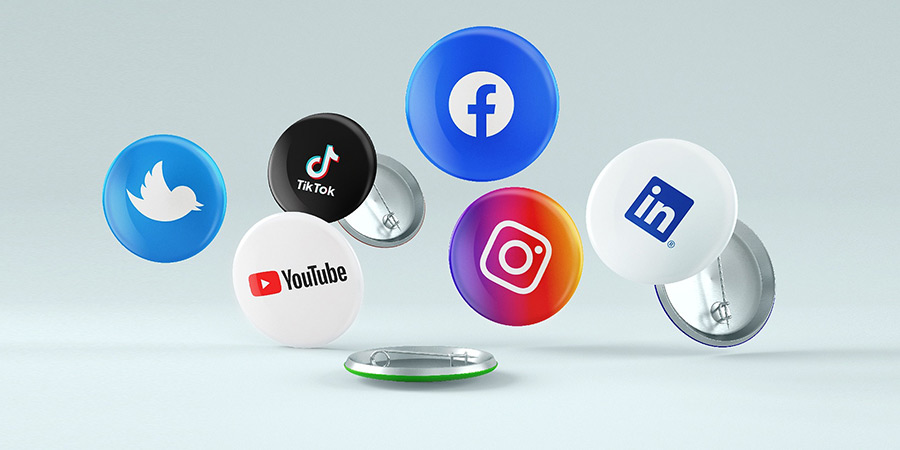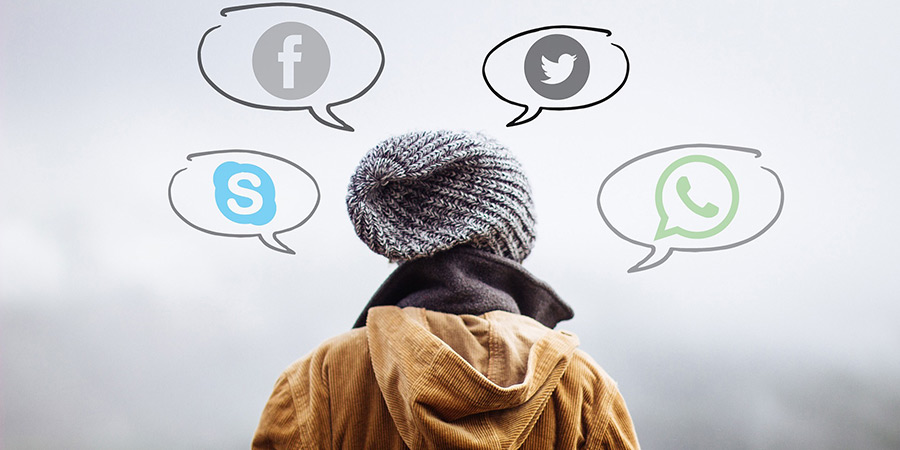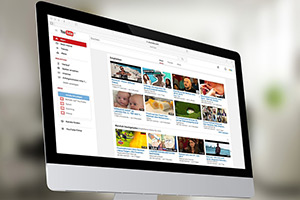How comedy creatives can use social media

Social media. We don't always like it, we may find ourselves railing against it. But it's here to stay (for now, at least).
We all know writers - and performers, let's be honest - love to procrastinate. And the danger of social media is that it becomes an engine of procrastination. Quite literally, whole days, whole weeks, can be lost.
But it can also be useful - and, if you're not on social media, you should at least consider it. Here's why.
Share jokes!
One of the slight problems for completely new comedy writers is that they need to demonstrate they can actually write comedy. Writing one-liners and funny observations is not really the same as writing a proper piece of narrative comedy, but writing jokes is an essential part of writing a sitcom. If you maintain a social media presence, you can share your jokes - if they're funny, they will take off. If you're consistently funny, you will build a following and people will start to take notice of you.
Please don't misunderstand us, it's a long road. But sharing your humour online can be a useful thing for an aspiring comedy writer or comedian to do. And, whilst you're at it, why not enter a few jokes into our long-running Gag-A-Week competition?There's a chance to win a tenner: and the winning joke will be shared with a wide audience on social media, including industry professionals.
Build your network
As we discussed in our recent networking piece, writers need to network - and they need a network. Aside from our many resources, utilising social media can be extremely useful when it comes to building your professional - or potentially professional - circle. Connect with people who share your interests, wherever they are in their career. There are lots of writers and producers on Twitter - follow them. Writers, in particular, will often follow back.

As your network expands, and you build a roster of people you can engage with...
Chat!
Chat is good. Not weird stalkery chat, where you respond to everything a person says. But chatting on subjects that interest you - particularly, obviously, comedy!
Many friendships and professional associations have been forged over the discussion of our very favourite topic.
Perhaps you hold different views to the person you're engaging with, perhaps they're the same. Either way, it's likely your engagement will be welcomed if you express yourself in a reasonable way. We'd recommend you try to avoid being overly didactic or negative: just because you particularly disliked a programme, doesn't mean the person you're speaking with did too. You never know: their mate may have written it - or starred in it. It's tricky we know (social media seems to do something to our natural impulse control) but you will get further if you play nice!
Ask for help
There are plenty of writing communities established on various social media platforms that you can engage with.
Struggling with an aspect of your script? Then ask for help! Requesting advice and support online can be a great way of building your contact list, and introducing yourself to the "community". And it can be a great way to get problems or questions answered swiftly and comprehensively.
Slip into their DMs
Written a script you want someone to read? Need some advice? It's okay in the modern world to slip politely into someone's DMs. They may reply, or they may not - if they don't, it's probably best to resist the urge to obsessively badger.
But you should not be afraid, if it's of genuine use to you - and, ideally, when you are not tweeting under the influence - to drop someone a polite direct message. We certainly know of such approaches yielding results!

Create a good impression
No, we don't splatter your social media profiles with heavily filtered photos of yourself. You should be authentic. But it's also important to remember that your Twitter profile, for example, is public and easily accessible.
Be the type of person you would wish to engage with. That doesn't mean diluting your passions or presenting yourself in a totally vanilla manner, but it might mean thinking twice before posting after cocktail hour, and maybe moderating some of your language and opinions.
Don't endlessly moan
We have shared before the joke that the collective noun for writers is "a moan". Writers, in particular, are famous for their moaning - about producers, directors, agents, actors, and, of course, most acutely, commissioners and executives. "Why don't they appreciate my genius?!", "Why do they have so little imagination?!" Etcetera.
But moaning in an alehouse, or coffee shop, with a group of fellow travellers is one thing; moaning endlessly online - about your lack of work; about your problems with the benefits system; about struggling to find representation - does not give off an attractive impression. We appreciate how difficult things can be: but it's probably best to keep the relentless griping offline.
We hope this has been helpful - and we hope it has given you the confidence to engage with social media in a constructive way. As ever, we wish you nothing but the best with your endeavours and more very soon.
This article is provided for free as part of BCG Pro.
Subscribe now for exclusive features, insight, learning materials, opportunities and other tools for the British comedy industry.



